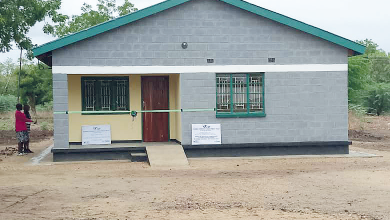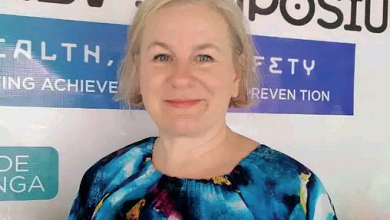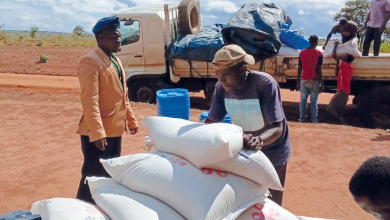‘We watched mom die’
On July 5 this year, the clustered Mwanjabala Village in Karonga Town was a hive of bittersweet memories as the abakaya (neighbours and kinsfolk) unveiled tombstones of their beloved nine.
Among the dead but not forgotten was Fatima Nyamkonda, a mother of 11 who succumbed to kidney failure at Karonga District Hospital with no help in sight.

“There was nothing we could do to save her,” says one of her surviving children.
Returning to her two-year-old grave, the Ngonde-speaking kinsfolk murmured how they and caregivers helplessly watched her die on a sickbed.
Neglected crisis
The death of a clinician’s widow exposes the tragedy of patients with acute kidney disorders not only in Karonga, but the entire Northern Region, which has no single dialysis machine.
Dozens experiencing kidney failure to remove waste products from blood and produce urine have to choose between a costly trip to undergo dialysis at Kamuzu Central Hospital (KCH) in Lilongwe and dying close to home. Some die on the way to the capital city.
Out of at least 500 public health facilities, only KCH and Queen Elizabeth Central Hospital (QECH) in Blantyre provide dialysis.
Mzuzu Central Hospital (MCH) has never had a dialysis machine since its inception in 2000.
This left Nyamkonda’s family in a tight spot on her fateful day, October 19 2023.
The deceased’s son recounts: “Early in the morning, I received a call that my mother, who had been admitted to Karonga Hospital, was in a coma. I left everything in Mzuzu.
“In the afternoon, a clinician, who was treating her diabetes and high blood pressure, disclosed to me that my mom had developed kidney failure and she needed dialysis while treating her underlying conditions. The clinician was candid: ‘The nearest dialysis machine is in Lilongwe.’ This put us in a fix.
“We had to decide whether to transport her while in a coma to Lilongwe with the possibility of her dying on the way or wait for the kidneys to naturally start functioning again as she was under the support system.
“We chose to wait. That night, she passed on in her sleep. We wished the nearest hospital had a lifesaving machine.”
The agony of kidney failure patients persists. The Northern Region’s largest hospital still refers patients to KCH, which has 10 machines. QECH has five, but only four work.
This is a death warrant for Malawians who cannot afford private care at Partners in Hope in Lilongwe or Mwaiwathu and Blantyre Adventist in Blantyre.
The raw deal leaves caregivers in ill-equipped central hospitals—and all district facilities— hamstrung when faced with patients of kidney disorders, the world’s eighth-worst killer, projected to become fifth by 2040.
‘Prevention is cheaper’
The Ministry of Health reports that over 400 patients are receiving treatment countrywide. However, the count could be higher as some die without knowing their status or accessing the few blood-cleaning machines.
Dr John Chipolombwe, kidney specialist at MCH, was quoted as having sourced quotations for the procurement of dialysis machines for the largest hospital in the North–but did not say how many.
However, the doctor says prevention is cheaper than treatment as not everyone referred to KCH’s overwhelmed dialysis unit gets assistance on time.
“Treatment is costly as the country doesn’t have enough facilities to handle patients suffering kidney disease,” Chipolombwe told Daily Times.
Secretary for Health Dr Samson Mndolo says “Mzuzu will start offering dialysis very soon”.
He states: “This means 75 percent of the tertiary health facilities—central hospitals—that are supposed to offer dialysis is providing the service.
“This leaves us with one—Zomba Central Hospital. We are yet to have a roadmap with that hospital to see how far they are. “
However, every life counts and time is almost everything in kidney treatment, care and support.
Interestingly, health authorities are aware of the age-old gap that supposedly cost 42 lives from 70 patients recorded in nine months.
In February, Deputy Minister of Health Noah Chimpeni said: “The hospital [MCH] has a lot of challenges, mostly lacking important things such as dialysis machines.
“It’s as if it is just a central hospital, but not operating at such a level. So, we will see how we can come in and assist.”
On his campaign trail in 2020, President Lazarus Chakwera promised to construct a well-equipped hospital in the North, but none took shape.
The former opposition leader returned to the North last month to launch his re-election campaign—and kidney treatment remained on the microphone.
“Chakwera is the only leader who has provided dialysis machines for Mzuzu Central Hospital,” proclaimed Minister of Information and Digitisation, Moses Kunkuyu.
MCH has procured six machines—worth K800.4 million—to start providing dialysis later this year, says its spokesperson Arnold Kayira.
Huge relief
This is a huge relief to the region where people keep dying prematurely due to a lack of the life-saving essential.
In June, Yamikani Kapenuka succumbed to chronic kidney disease at Wovwe Hydropower Station in Karonga. She was buried at HHI Cemetery near Mwaiwathu Hospital in Blantyre, where she used to get dialysis twice a week instead of thrice as prescribed.
Every week, Kapenuka endured a bumpy 1 000-kilometre ride, an out-of-pocket cost that impoverishes acute kidney injury or chronic failure patients living outside the cities of Lilongwe and Blantyre.
Karonga district director of health services, David Sibale, says it is unhealthy for patients to travel beyond the region for dialysis.
“Having these services available nearby would greatly improve access and reduce costs for patients who need dialysis two to three times a week,” he said.
Sibale says establishing trust funds in local councils would “make kidney care more accessible to the needy”.
Additional reporting by our correspondent SEKILE KITALU.





